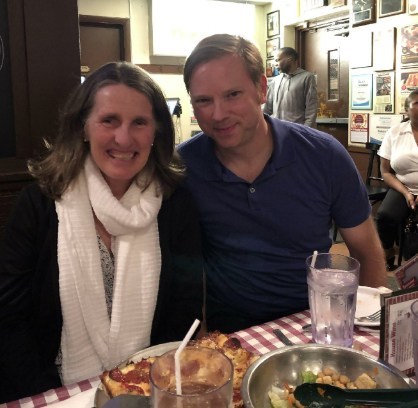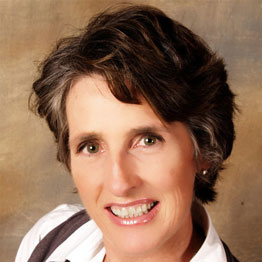Sustainable Brands Founder Calls for Courageous Optimism
July 9, 2019

The Sustainable Brands Conference drew over 2,000 people to Detroit’s Cobo Center the first week of June, for inspiration and exchange around global and local sustainability topics. The Sustainable Brands CEO and Founder KoAnn Vikoren Skrzyniarz set the stage by calling for courageous optimism in facing the challenges of saving the planet, despite the daunting data shared at the event:
- 60% decline in vertebrate species since 1970
- The Amazon River is near its tipping point of 25% species loss
- 60–100 years of soil left to grow food
- 2.3 million people (2% of U.S. households) live further than 1 mile from a supermarket and do not own a car
- 1/5 children in the U.S. face hunger every day
- Food waste is the #3 contributor to climate change, and 40% of food is wasted at the farm level
- People eat at least 50,000 plastic micro-particles a year
- By 2050, there will be more plastic in the ocean than fish
The Sustainable Brands conferences began in the U.S., in 2007, with the goal to “inspire, engage, and equip business leaders and practitioners who see social and environmental challenges as an essential driver of brand innovation, value creation, and positive impact.”
“Businesses can only create real value by integrating environmental and social challenges in our work” said Maggie Buggie, SVP, Global Head of SAP Leonardo Services, SAP. “We have the responsibility to create a different way of doing things, because the good life is only the good life if that is a possibility for everyone. And my personal sense of purpose is to help deliver it.”

The private sector can and needs to be a part of delivering on the United Nations’ Sustainable Development Goals (SDGs). They can use their products, services, networks, and voice to do this. And they do it increasingly in partnership with others. As Yumi Clevenger-Lee, Vice President and Chief Marketing Officer of Nestle Waters North America, said, “The problems are much greater than any one company or any one brand can solve alone… We need to reach across the table… to say ‘ok we have a common issue’… we can solve the problem more completely and much quicker if we do it together than if we try to make the ship alone.”
A major announcement at the Sustainable Brands ’19 conference was the launch of the “Brands for Good” collaboration. Their “Pull Factor Project” involves P&G, Keurig, Dr. Pepper, National Geographic, and others in efforts to leverage changes in consumer behavior rather than just “pushing more products.”
With a focus on storytelling and sharing good practices in science, technology, and collaboration, the conference celebrated what is working and gave guidance and energy to those who might follow. A leadership call to action around creativity was issued in plenary: “…the best innovators and the best leaders in companies teach their teams to see anxiety as fuel for creativity. If you are not on the edge of feeling afraid you are not being creative. And you can take this very simply to ask different kinds of questions when we face difficult situations.”
Among the many innovative companies that were featured were BanQu, a social enterprise working in partnership with ABInBev to bring blockchain traceability to women farmers in last-mile communities overseas; Thrive, that developed a heart-healthy culinary algae oil sourced from algae originally found in chestnut tree sap; and Impossible Foods, with their plant-based burgers that taste just like beef. Other companies, like P&G, shared innovation in packaging and product formulation that reduce waste, water use, and carbon footprint.

I was happy to run into Anthony Francisco, an alum of the Virginia Tech Center for Leadership in Global Sustainability XMNR program, who attended the conference as a volunteer. This is his seventh SB meeting. He reports it to be an excellent way to network with corporates and a wide range of sustainability professionals, and to gain inspiration from leading examples of good practice and innovation in the space. SB’20 will take place in Long Beach, CA next June.
---

Holly Wise serves as a senior associate at the Center for Strategic and International Studies, teaches enterprise development at Georgetown University School of Foreign Service, and is a member of the Council on Foreign Relations. Previously, Holly served as a senior fellow at Harvard’s Kennedy School of Government, USAID chair at the National Defense University, and spent 26 years in the Foreign Service with the US Agency for International Development (USAID) where she was the founder and first Secretariat Director of the Global Development Alliance.


